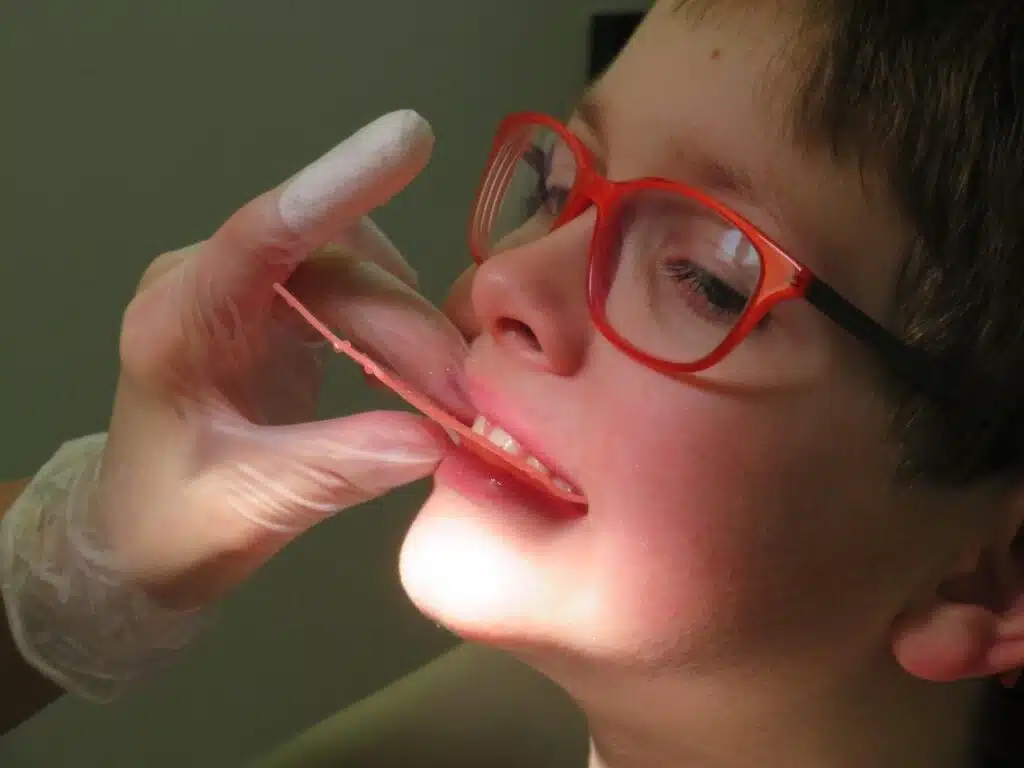It is an exciting time when a child starts losing teeth, especially the first ones. However, you may become concerned if you feel your child lost the first tooth too early. On the other hand, some parents may worry that it seems like the baby teeth will never loosen and fall out. That’s why it’s important to ask your dentist, when do children start losing their teeth.
Continue reading to learn more about the loss of children’s teeth, when you need to be concerned, and how to help your child have healthy teeth and gums throughout their life. And if you need help finding a children’s dentist we have offices in North Charleston, West Ashley, Summerville, Mount Pleasant, James Island, and Hanahan, SC.
To find out more about your child dental health, and other dental issues schedule an appointment with Trident General Dentistry.
When Should a Child Lose Their First Tooth?
Most children lose their first primary tooth, or baby tooth, around the age of six. This happens because the permanent tooth grows into and dissolves the roots of these teeth. When enough of the root dissolves, the tooth loosens and eventually falls out.
However, you should not be alarmed if your child first experiences this earlier since some children lose their first tooth as young as four years. It is also common for some to lose their first primary tooth as late as seven.
What Order Are Baby Teeth Lost?
The twenty primary teeth usually begin erupting into the mouth between six months and one year. The complete set of baby teeth has usually come in by the child’s third year. The order that these teeth erupt is the same order in which they fall out. This is the usual order:
-
Lower center teeth (central incisors).
-
Top central incisors.
-
Lower lateral incisors.
-
Canines (also known as cuspids or eye teeth).
-
Molars. The first molars erupt between thirteen and nineteen months and the second molars between twenty-two and thirty-three months.
When Does the First Adult Tooth Erupt?
Eventually, your child should have between twenty-eight and thirty-two “permanent” or adult teeth. The reason for the variability is that not everyone has all four third molars or wisdom teeth.
The first permanent teeth that erupt are the first molars behind the child’s baby teeth. Around this same time, a child gets their lower front teeth. Over the next several years, the remainder of the permanent teeth come in, with the second molars completing the process around age thirteen.
Around age seventeen, the wisdom teeth erupt, sometimes only partially, and may require extraction due to inadequate space to maintain them.
What If Some Baby Teeth Aren’t Lost?
Occasionally, a baby tooth never loosens and falls out. This can be due to the permanent tooth never developing beneath it. These baby teeth are known as retained baby teeth and can often be maintained into adulthood but need regular dental evaluations.
It is also possible that the permanent tooth is impacted beneath the baby tooth. In this case, the baby tooth may require extraction and the permanent tooth orthodontically brought into place.
How Can I Care for a Child’s Teeth?
You will need to supervise your child’s home care of brushing and flossing until they demonstrate the necessary skills to remove dental plaque adequately. The best oral hygiene habits to instill in your child are:
-
Brush twice daily for two minutes with a soft-bristled toothbrush.
-
Floss daily.
-
Minimize consuming sugar.
-
Eat a healthy diet.
-
Avoid chewing on non-food items, such as fingernails or ink pens.
-
Have regular dental checkups and professional teeth cleanings.
Schedule an Appointment
The earlier your child sees a dentist, the more likely they are to keep their teeth and gums healthy throughout their life. Call Trident General Dentistry to schedule an appointment for a comprehensive oral examination.

